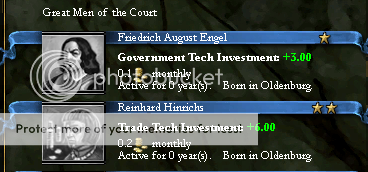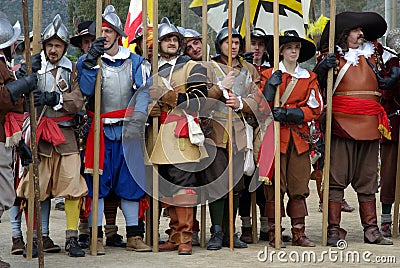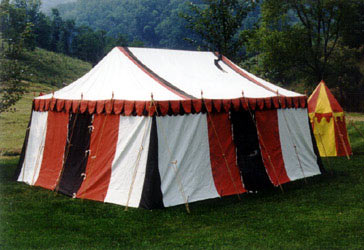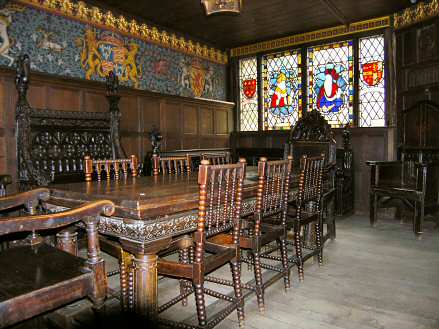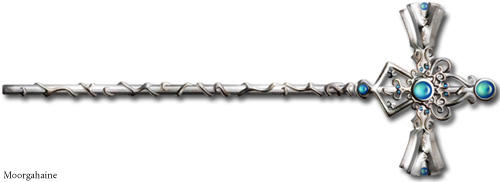I know what you're thinking. "Oldenburg, eh? Don't hear from them too often. Why pick them?"
Many reasons. First, I think they have an interesting position: they're the only German (as opposed to Dutch) OPM who is both a monarchy and coastal. Well, there's also Mecklenburg, but I hate their flag. (You're a German principality, not a rodeo, f*****g act like it!) Plus, Oldenburg's population is ridiculously low- just 2,001 at the start of the Grand Campaign.
Second, I got rained in on vacation, got bored, and started writing about my new game. After a few pages, I realized I'd done too much work not to publish this.
Third, why the hell not?
And that's really about it. Yes, three is many. >_>
Oh, yeah, I'd planned to do a Georgia AAR instead, but uh...I found it difficult to replicate my first game's results, and I decided a 25-year story of Georgia getting kicked around like a soccer ball between GH, Timurids, and Ottomans was a bit depressing.
So, without further ado, let's get this show on the road!
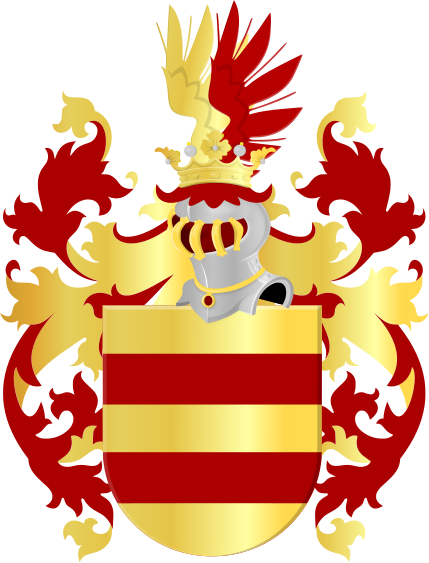
The Duchy of Oldenburg-Saxe-Lauenburg-LüneburgStarting Point: October 14, 1399
Version: DW 5.1
Settings: All Normal, except Lucky Nations set to None
Style: Narrative (though not all of it will be down on the personal level)
Rules
Reloads are only acceptable in the event of a ridiculous, unrealistic, gamebreaking event, ie 50,000 Oldenburgers getting wiped out by 500 soldiers because they were feeling down in the dumps. Or if I get annexed and the public asks that I take another shot. Otherwise, no reloading.
Missions must be completed unless they're also ridiculous. (Example: Forcelimit of, say, 300, army of 150, and get the mission "create an army for our nation.")
No wars without a Casus Belli
Other than that, pretty much anything goes. Except cheats.
Alright, let's go!
Table of Contents
The Reign of Duke Christian VI the Crusader von Oldenburg
Chapter 1: So It Begins... (October 14, 1399 - January 1, 1400)
Chapter 2: Elevation of the Oldenburgers (January 1, 1400 - August 7, 1400
Chapter 3: Herzog, We Have a Problem (August 7, 1400 - December 3, 1401)
Chapter 4: Things Fall Apart (March 5, 1402 - May 18, 1404)
Chapter 5: Silver Tongues and Steel Swords (May 20, 1404 - April 30, 1405)
Chapter 6: Don't Stop Believing (April 30, 1405 - December 6, 1406)
Chapter 7: The Fruits of Victory (April 20, 1407-July 23, 1409)
The Reign of Dietrich Fortunatus von Oldenburg
Chapter 8: Blood, Sand, and Iron (November 28, 1409 - August 24, 1411)
Chapter 9: An Unexpected Guest (August 25, 1411 - February 3, 1414)
Chapter 10: Gott Mit Uns (February 4, 1414 - August 19, 1415)
Chapter 11: Well, Damn. (October 7, 1415 - December 25, 1415)
Chapter 12: A Highway to Hell (February 4, 1416 - February 22, 1417)
Many reasons. First, I think they have an interesting position: they're the only German (as opposed to Dutch) OPM who is both a monarchy and coastal. Well, there's also Mecklenburg, but I hate their flag. (You're a German principality, not a rodeo, f*****g act like it!) Plus, Oldenburg's population is ridiculously low- just 2,001 at the start of the Grand Campaign.
Second, I got rained in on vacation, got bored, and started writing about my new game. After a few pages, I realized I'd done too much work not to publish this.
Third, why the hell not?
And that's really about it. Yes, three is many. >_>
Oh, yeah, I'd planned to do a Georgia AAR instead, but uh...I found it difficult to replicate my first game's results, and I decided a 25-year story of Georgia getting kicked around like a soccer ball between GH, Timurids, and Ottomans was a bit depressing.
So, without further ado, let's get this show on the road!

The Duchy of Oldenburg-Saxe-Lauenburg-Lüneburg
Version: DW 5.1
Settings: All Normal, except Lucky Nations set to None
Style: Narrative (though not all of it will be down on the personal level)
Rules
Reloads are only acceptable in the event of a ridiculous, unrealistic, gamebreaking event, ie 50,000 Oldenburgers getting wiped out by 500 soldiers because they were feeling down in the dumps. Or if I get annexed and the public asks that I take another shot. Otherwise, no reloading.
Missions must be completed unless they're also ridiculous. (Example: Forcelimit of, say, 300, army of 150, and get the mission "create an army for our nation.")
No wars without a Casus Belli
Other than that, pretty much anything goes. Except cheats.
Alright, let's go!
Table of Contents
The Reign of Duke Christian VI the Crusader von Oldenburg
Chapter 1: So It Begins... (October 14, 1399 - January 1, 1400)
Chapter 2: Elevation of the Oldenburgers (January 1, 1400 - August 7, 1400
Chapter 3: Herzog, We Have a Problem (August 7, 1400 - December 3, 1401)
Chapter 4: Things Fall Apart (March 5, 1402 - May 18, 1404)
Chapter 5: Silver Tongues and Steel Swords (May 20, 1404 - April 30, 1405)
Chapter 6: Don't Stop Believing (April 30, 1405 - December 6, 1406)
Chapter 7: The Fruits of Victory (April 20, 1407-July 23, 1409)
The Reign of Dietrich Fortunatus von Oldenburg
Chapter 8: Blood, Sand, and Iron (November 28, 1409 - August 24, 1411)
Chapter 9: An Unexpected Guest (August 25, 1411 - February 3, 1414)
Chapter 10: Gott Mit Uns (February 4, 1414 - August 19, 1415)
Chapter 11: Well, Damn. (October 7, 1415 - December 25, 1415)
Chapter 12: A Highway to Hell (February 4, 1416 - February 22, 1417)
Attachments
Last edited:











